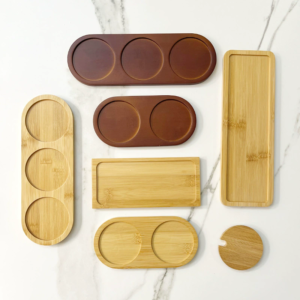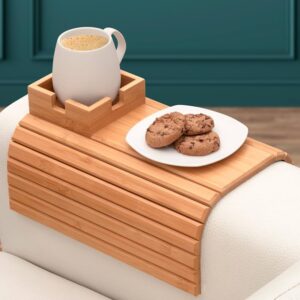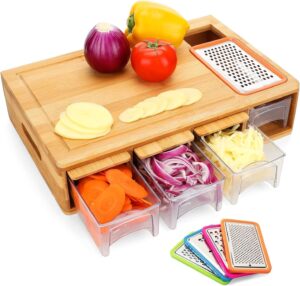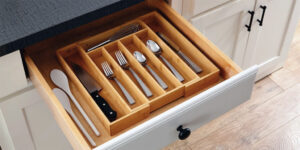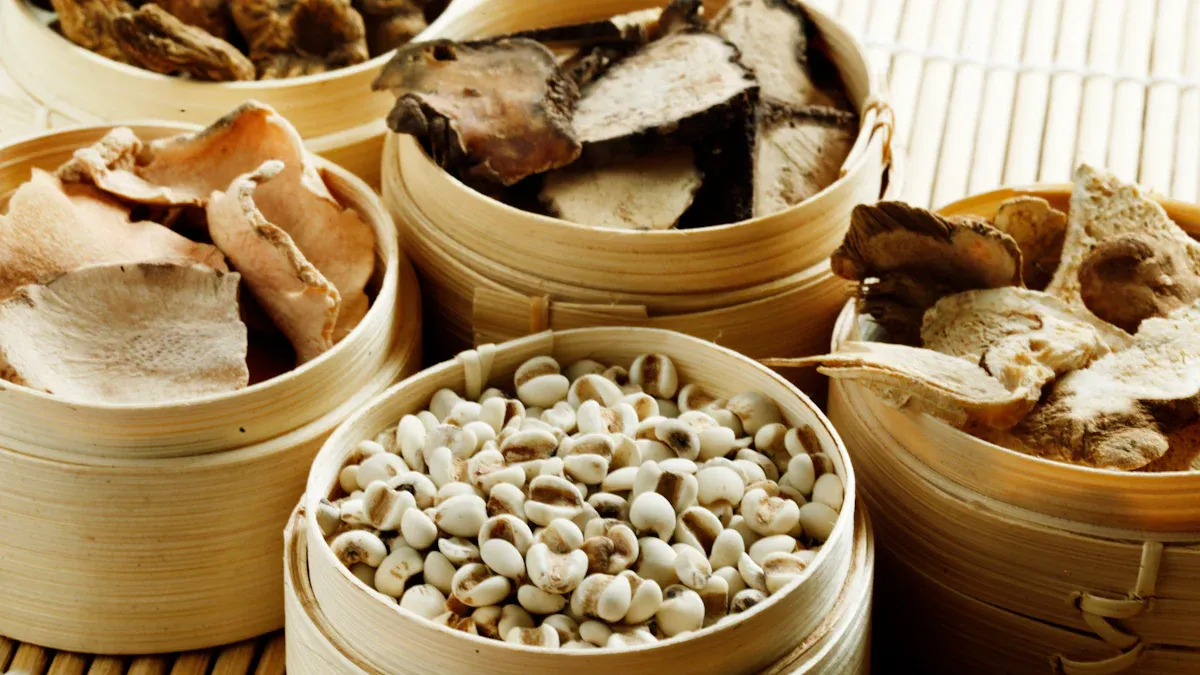
You want your kitchen to be safer and cleaner. Bamboo food storage containers are the perfect solution to keep your food fresh without harmful chemicals. Many people choose bamboo food storage containers because bamboo grows quickly and is environmentally friendly. These containers offer a smart and sustainable way to store food while reducing waste. By using bamboo food storage containers, you’re protecting your family and helping the planet.
Why Choose Bamboo Food Storage Containers
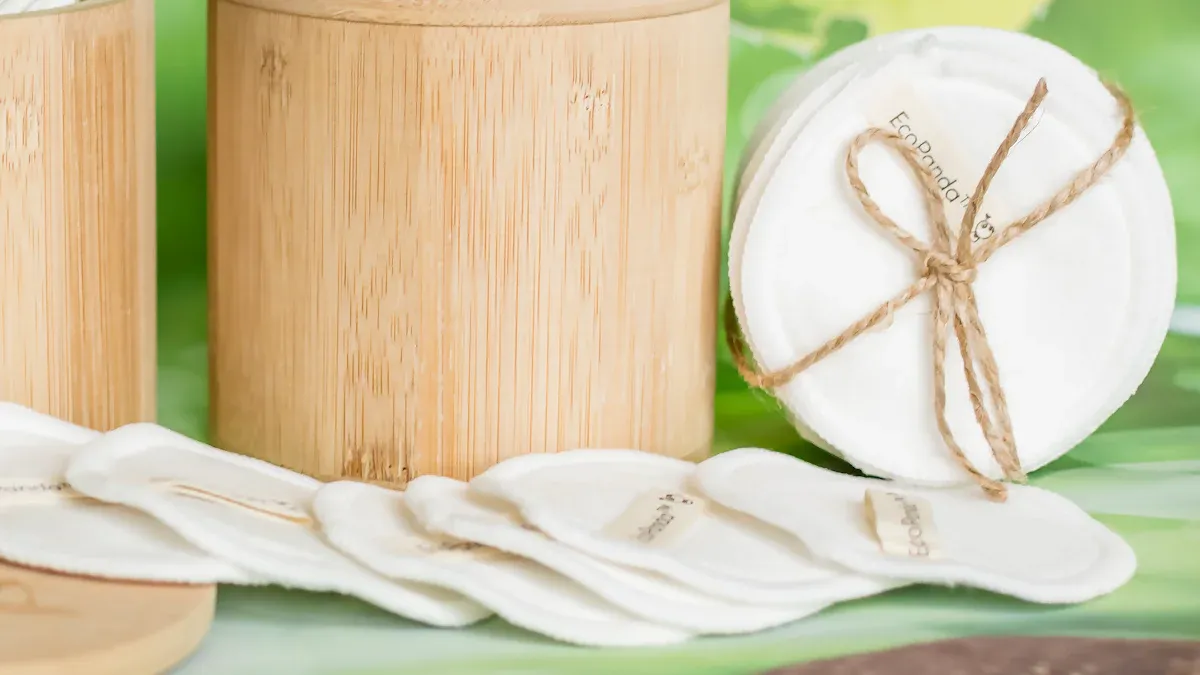
Healthier Food Storage with Bamboo
You want to keep your food safe and fresh. Bamboo food containers help you do that. Bamboo does not contain harmful chemicals like BPA, which you often find in plastic containers. You can store your food with confidence because bamboo is a natural material. Many bamboo food storage containers meet strict safety standards. For example, the FDA approves bamboo for food contact, so you know it is safe for your family. Some bamboo food containers also have NON-GMO Verified labels, which means they do not use genetically modified materials. You can trust bamboo to keep your food healthy and free from toxins.
Tip: Always look for certifications when you buy bamboo food containers. These labels show that the product meets high safety and environmental standards.
| Certification / Standard | Description | Relevance to Bamboo Food Storage Containers |
|---|---|---|
| FDA Approval | Ensures materials are safe for food contact. | Mandatory for bamboo food storage containers to ensure food safety. |
| NON-GMO Verified | Verifies products are free from genetically modified organisms. | Relevant for bamboo products marketed as natural and GMO-free. |
| FSC Certified Paper | Certification for responsible and ethical forest management, including bamboo products. | Specifically recognizes sustainable sourcing and production of bamboo items. |
Eco-Friendly Impact of Bamboo Food Containers
You help the planet when you choose bamboo food containers. Bamboo grows very fast and does not need much water or chemicals. This makes bamboo an eco-friendly option for your kitchen. Many bamboo food storage containers are biodegradable and compostable. They break down naturally and do not add to landfill waste. Some containers meet standards like ASTM-D6400 or European Standard EN 13432, which means they can compost in less than six months. You support sustainability when you use bamboo food containers. These earth-friendly products reduce pollution and help protect nature.
Note: Bamboo food containers often carry eco-labels that prove their compostability and low impact on the environment.
Practical Advantages for Everyday Use
You want storage that works for your busy life. Bamboo food containers are strong and lightweight. You can carry them easily, and they do not break like glass. Bamboo resists stains and odors, so your food stays fresh. You can use bamboo food containers for snacks, leftovers, or meal prep. They look modern and stylish on your kitchen shelves. Many people like the natural look of bamboo. You also get a long-lasting product. While glass containers last a long time, bamboo food containers offer durability and convenience without the risk of shattering. Plastic containers may warp or degrade over time, but bamboo stays strong.
- Glass food storage containers with bamboo lids resist chipping and cracking.
- Plastic containers may not last as long because they can degrade and release chemicals.
- Bamboo food containers give you a balance of strength, safety, and style.
You make a smart choice for your home and the environment when you pick bamboo food storage containers. They offer a practical, eco-friendly, and healthy way to store your food every day.
The Environmental Problems with Plastic and Glass Containers
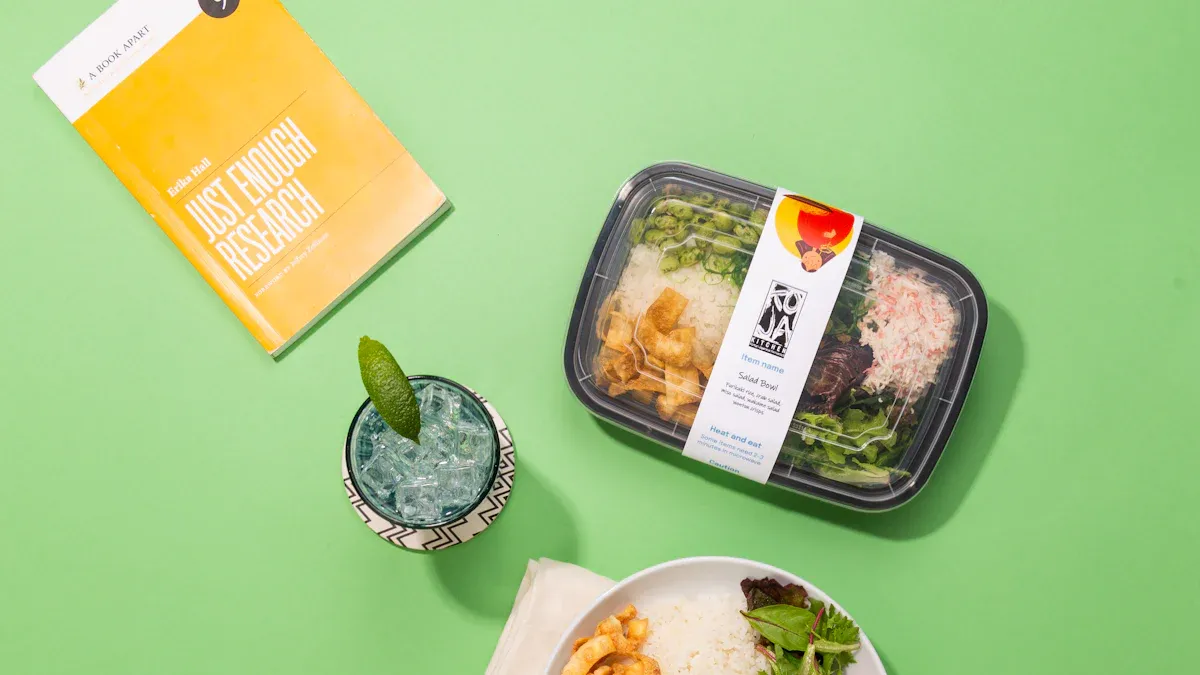
Plastic Waste and Pollution
You see plastic containers everywhere, but they create big problems for the environment. When you use plastic food storage containers, you add to the growing issue of plastic waste. Most plastics do not break down easily. They can stay in landfills or oceans for hundreds of years. During production and disposal, plastic containers release many harmful pollutants:
- Phthalates, which can move into your food and link to health problems.
- Bisphenols like BPA, which can leach into food and raise health concerns.
- PFAS, which can contaminate food and water.
- Organophosphates, which are toxic to your nervous system.
- Solvents and surfactants, which can migrate into food.
- Microplastics, which pollute water and soil.
These chemicals do not just harm people. They also damage wildlife and pollute the environment. By reducing plastic waste, you help protect nature and keep your surroundings cleaner.
Health Risks of Plastic and Glass
You may not realize that plastic food containers can affect your health. Microplastics from these containers can enter your body through food and drinks. Scientists have found microplastics in blood, lungs, and even brain tissue. These tiny particles can cause inflammation and increase your risk for heart disease, autoimmune problems, and cancer. Heating or microwaving food in plastic containers makes the problem worse. More chemicals and microplastics move into your food. Black plastics, often made from recycled electronics, can contain dangerous chemicals linked to cancer and hormone problems. Children face even higher risks because their bodies are still growing.
Glass containers do not release microplastics, but they can still pose risks. If glass breaks, it can cause injuries. Some glass products may contain heavy metals, which can leach out over time.
Tip: Choose safer alternatives for storing your food, especially if you heat or microwave it.
Environmental Footprint of Conventional Materials
You might think glass is always a green choice, but making glass food containers uses a lot of energy. Factories burn fossil fuels to melt materials for glass, which releases greenhouse gases, sulfur oxides, and nitrogen oxides. These emissions pollute the air and contribute to climate change. Heavy metals like arsenic and lead can also escape during production. After you throw away glass containers, they often end up in landfills. Even though glass is recyclable, not all glass gets recycled. The heavy weight of glass also means more fuel is needed to transport it, which increases pollution. Both plastic and glass containers leave a large mark on the environment from start to finish.
Bamboo as a Sustainable Alternative
Rapid Renewability of Bamboo
You want a material that grows back quickly and does not harm the environment. Bamboo stands out because it is one of the fastest-growing plants on Earth. Some species of bamboo can grow up to three feet in just one day. When you harvest bamboo, you do not need to replant it. The roots stay in the ground and send up new shoots. This makes bamboo a truly sustainable resource. You help protect forests and reduce deforestation when you choose bamboo food storage containers. Unlike hardwood trees, which can take decades to mature, bamboo reaches full size in only a few years.
Low Carbon Footprint and Biodegradability
You care about reducing your impact on the planet. Bamboo food storage containers have a low carbon footprint. Growing bamboo does not require much water or chemical fertilizers. The plant absorbs large amounts of carbon dioxide and releases oxygen, which helps fight climate change. When you use bamboo containers, you also support sustainability because these products are biodegradable. Bamboo dinnerware and food storage containers made from bamboo pulp fiber break down naturally in commercial composting facilities. They are certified as 100% biodegradable and compostable under managed landfill and composting conditions. Even at home, you can cut bamboo items into smaller pieces to help them decompose faster. These containers do not leave behind harmful chemicals or microplastics, so they return to the earth as nutrient-rich compost.
Note: Choosing biodegradable bamboo containers means you help keep landfills cleaner and support a healthier environment.
Natural Antimicrobial Properties of Bamboo
You want your food to stay fresh and safe. Bamboo contains natural bio-agents like bamboo kun, which make it hard for bacteria to grow. Scientific studies show that bamboo can fight off common bacteria such as E. coli and Staphylococcus aureus. The plant’s natural compounds, including lignin and phenolic acids, disrupt the growth of germs. When you use bamboo food storage containers, you lower the risk of bacterial contamination. Regular cleaning and drying help maintain these antimicrobial benefits. This makes bamboo a smart choice for food storage, keeping your meals safer and your kitchen more hygienic.
Tip: Bamboo’s natural antimicrobial properties add an extra layer of protection for your food, making it a reliable and sustainable alternative to plastic or glass.
Comparing Bamboo Food Storage Containers to Other Options
Eco-Friendliness and Sustainability
You want to make choices that help the planet. Bamboo food containers stand out as an eco-friendly option because bamboo grows quickly and needs little water or chemicals. When you compare bamboo to stainless steel and silicone, you see clear differences:
| Material Type | Eco-Friendliness Factors | Usability & Limitations |
|---|---|---|
| Bamboo (with glass) | Rapidly renewable, minimal pesticides, sustainable, reduces plastic use, recyclable glass | Not dishwasher safe, lids do not lock, best for dry storage |
| Stainless Steel | Extremely durable, plastic-free, recyclable | Cannot be microwaved, limiting reheating options |
| Silicone | Durable, dishwasher and oven safe, reusable | Made from synthetic materials, less natural than bamboo |
Bamboo food containers score high on sustainability metrics. They are plant-based, biodegradable, and compostable. You support lower carbon emissions and waste reduction when you use them. Bamboo also releases more oxygen than trees and grows back fast, making it a smart choice for the environment.
Health and Safety Benefits
You want your food to stay safe. Bamboo food containers often carry important certifications. These include FDA and LFGB, which show the containers meet strict food safety standards. You also find BPA-free labels, which means no harmful chemicals will leach into your food. Manufacturers provide test reports to prove these claims. When you choose bamboo food containers, you protect your family from toxins and enjoy peace of mind.
Tip: Always check for certifications like FDA, LFGB, and BPA-free when buying food storage containers.
Durability and Longevity
You need containers that last. Bamboo food containers offer good durability for everyday use. They work best for dry goods like grains, nuts, and pasta. Many users praise their natural look and the warm, rustic style they bring to your kitchen. Glass canisters with bamboo lids also get high marks for their airtight seal and space-saving design. While bamboo lids may not lock tightly, they keep your food fresh and add a modern touch to your shelves. Stainless steel containers last a long time but cannot go in the microwave. Silicone is reusable and easy to clean but does not have the same natural appeal as bamboo.
- Bamboo food containers are ideal for dry storage and add style to your kitchen.
- Stainless steel and silicone offer different strengths, but bamboo stands out for its renewable source and attractive design.
Usability and Style
You want food storage containers that make your life easier. Bamboo food storage containers offer you simple solutions for everyday use. You can open and close them quickly. The lids fit well, so your food stays fresh. You do not need to worry about spills when you carry snacks or leftovers. Many bamboo containers stack neatly, which saves space in your kitchen cabinets.
Tip: Stack bamboo containers to keep your pantry organized and find what you need faster.
Bamboo containers feel light in your hands. You can pack them in your lunch bag or backpack without adding extra weight. Unlike glass, bamboo does not break easily if you drop it. This makes bamboo a safe choice for families with children.
You also care about how your kitchen looks. Bamboo food storage containers add a modern and natural style to your shelves. The warm color and smooth finish of bamboo match many kitchen designs. You can use them for dry foods like rice, pasta, or snacks. Some containers have clear glass bottoms with bamboo lids, so you can see what is inside.
Here is a quick comparison of style features:
| Feature | Bamboo Containers | Plastic Containers | Glass Containers |
|---|---|---|---|
| Appearance | Natural, modern, warm | Bright, sometimes dull | Clear, classic |
| Weight | Lightweight | Lightweight | Heavy |
| Breakability | Low | Low | High |
You can impress guests with bamboo containers on your countertop. They show that you care about both style and sustainability. Many people choose bamboo because it looks clean and feels good to use every day.
Note: Bamboo containers make your kitchen look tidy and eco-friendly at the same time.
Top Benefits of Bamboo Food Containers
Biodegradable and Compostable
You help the planet when you choose bamboo food containers. Bamboo breaks down naturally, so it does not stay in landfills for hundreds of years. Many people use biodegradable tableware like disposable bamboo plates at parties or picnics. These products return to the earth as compost, making them a smart choice for eco-friendly living. Bamboo tableware and storage containers support a cleaner environment because they do not create long-lasting waste. You can feel good knowing that your kitchen choices help reduce pollution and support sustainability.
Tip: Composting bamboo items at home or in a commercial facility helps create nutrient-rich soil for gardens.
Non-Toxic and Chemical-Free
You protect your health by using bamboo food containers. Unlike plastic, bamboo does not contain harmful chemicals. Many plastic containers have substances like BPA, PFAS, and other toxic additives. These chemicals can move into your food, especially when you heat or store fatty foods. Bamboo alternatives avoid these risks. You get a safer way to store your food because bamboo is natural and chemical-free. Biodegradable tableware made from bamboo does not leach toxins, so you keep your meals safe for your family.
- Bamboo does not have:
- Bisphenol A (BPA) or its replacements
- Per- and polyfluoroalkyl substances (PFAS)
- Other toxic additives
You make a healthy choice every time you pick bamboo over plastic.
Strong, Lightweight, and Convenient
You want storage that fits your busy life. Bamboo food containers are strong but light. You can carry them easily to school, work, or a picnic. They do not break like glass, so you do not worry about accidents. Many people like the modern look of bamboo. Market research shows that consumers want products that are durable, stylish, and eco-friendly. Bamboo kitchenware and storage containers meet these needs. You find designs that resist heat and moisture, making them practical for daily use. Bamboo tableware and containers stack neatly, saving space in your kitchen.
- Popular features include:
- Durable bamboo-fiber composites
- Attractive, natural finishes
- Eco-friendly packaging
You enjoy both style and function when you use bamboo in your kitchen.
Modern and Stylish Design
You want your kitchen to look clean and modern. Bamboo food storage containers give you a fresh and stylish way to organize your space. The natural color of bamboo matches many kitchen designs. You see smooth finishes and warm tones that make your shelves look inviting. Many people choose bamboo because it brings a touch of nature indoors.
Designers often use bamboo in modern homes. You find bamboo containers in homes with minimalist, Scandinavian, or eco-friendly styles. The simple shapes and clean lines fit well with these trends. You can stack bamboo containers neatly, which saves space and keeps your pantry organized. Some containers have clear glass bottoms with bamboo lids. This lets you see what is inside while adding a modern look.
Note: A 2023 survey by the National Kitchen and Bath Association found that 68% of homeowners prefer natural materials like bamboo for kitchen storage. This shows a strong trend toward eco-friendly and stylish choices.
You also get versatility with bamboo tableware and storage containers. You can use them for snacks, dry foods, or even as serving pieces when guests visit. The lightweight design makes them easy to move and handle. Many families like the way bamboo containers look on open shelves or countertops.
Here are some reasons why bamboo containers stand out:
- Natural, warm appearance
- Smooth, splinter-free finish
- Fits many kitchen styles
- Lightweight and easy to carry
- Modern, minimalist shapes
You make your kitchen look modern and welcoming when you choose bamboo storage solutions. These containers show that you care about both style and sustainability.
You make a smart choice for your health and the planet when you use bamboo food storage containers. Bamboo grows quickly, absorbs carbon dioxide, and supports local farmers. Many governments and NGOs recommend bamboo for sustainable living. Studies show bamboo is non-toxic, durable, and stylish. See how bamboo compares to plastic:
| Aspect | Bamboo | Plastic |
|---|---|---|
| Environmental Impact | Renewable, sustainable, biodegradable | Polluting, non-sustainable, persistent |
| Health Safety | Non-toxic | Potentially toxic |
| Durability | Durable, long-lasting | Less durable, shorter lifespan |
| Aesthetics | Stylish, natural appearance | Less stylish, synthetic look |
Switching to bamboo helps you reduce waste and create a greener, safer kitchen.
FAQ
Are bamboo food storage containers safe for all types of food?
Yes, you can safely use bamboo containers for dry foods, snacks, and some leftovers. Bamboo does not contain BPA or harmful chemicals. For liquids or very wet foods, use containers with a tight seal or a glass base with a bamboo lid.
How do you clean bamboo food storage containers?
Wash bamboo containers by hand with mild soap and warm water. Dry them completely before storing. Avoid soaking them or putting them in the dishwasher. This helps prevent warping and keeps your containers looking new.
Can you put bamboo food containers in the microwave or oven?
You should not use bamboo containers in the microwave or oven. High heat can damage bamboo and cause it to crack. Use them for storing and serving food, not for cooking or reheating.
How long do bamboo food storage containers last?
With proper care, bamboo containers can last for several years. Keep them dry and clean. Avoid dropping them or exposing them to extreme temperatures. Bamboo is strong and durable, but good care extends its life.
Are bamboo food containers eco-friendly compared to plastic?
Yes, bamboo containers are much more eco-friendly. Bamboo grows quickly and does not need pesticides. It is biodegradable and compostable. Plastic containers can take hundreds of years to break down and often release harmful chemicals.
Tip: Choose bamboo to help reduce plastic waste and support a healthier planet.

